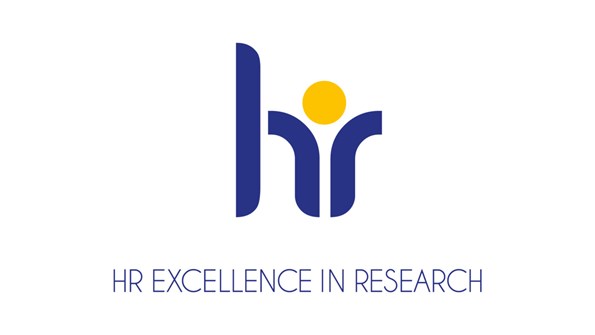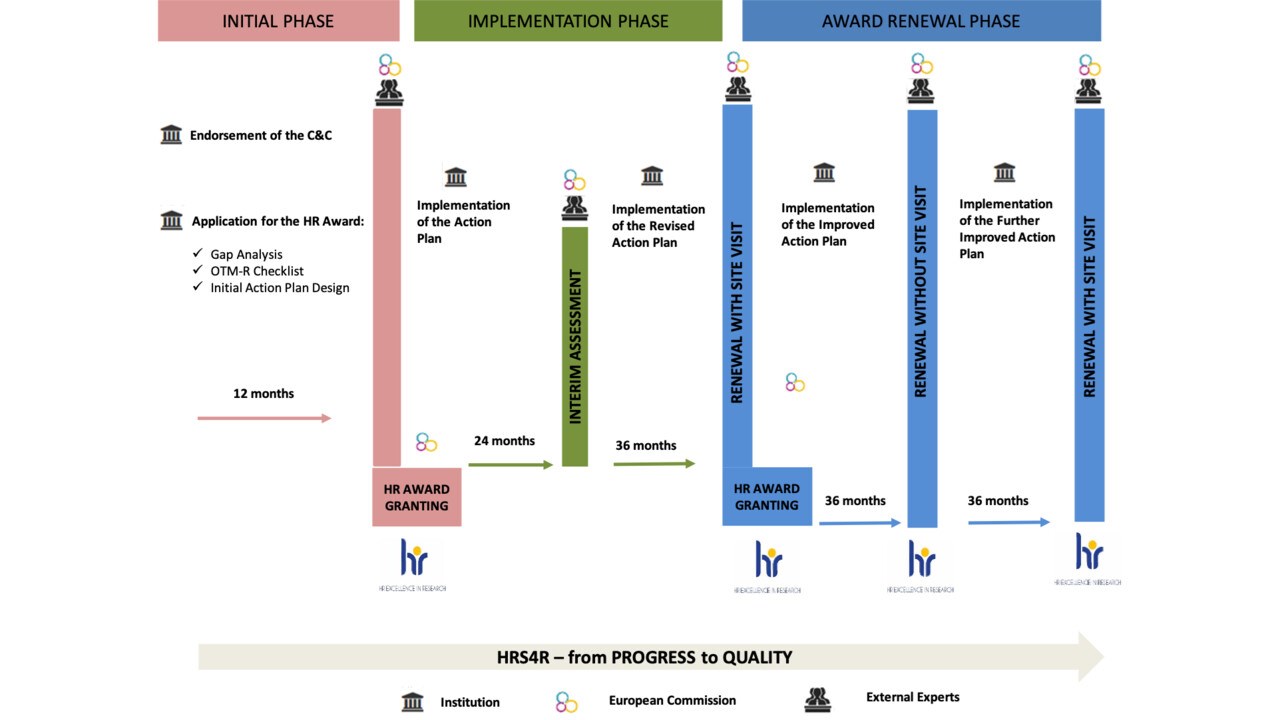On this page, we provide information on Umeå University’s implementation of the HRS4R as well as on the main policies related to the principles of the Charter & Code.

The implementation of HRS4R consists of three phases:
1. Initial phase for the application for the "HR Excellence in Research Award".
2. Implementation phase of:
• the Initial Action Plan (2 years after the HR Award was granted, followed by an Interim Assessment).
• the Revised Action Plan (3 years after the Interim assessment).
3. Award Renewal phase
• Renewal including a visit (five years after the initial HR Award was granted).
• Renewal without Site Visit (3 years months after the Renewal including a visit).
Umeå University has reached phase two: Implementation of the action plan. In the work of winning the award (phase one), the University has shown commitment to improving the research staff's working conditions and career development. Faculties, departments, university administration and researchers will work together to achieve the goals and ensure that researchers gain the best possible experience of working at Umeå University.
Endorsement letter
A letter signed by the current highest management representative within the organisation. The letter clearly states both the endorsement of the 40 principles of the European Charter for Researchers and the Code of Conduct for the Recruitment of Researchers, as well as the commitment to start the procedure and to undergo all subsequent cycles of the implementation of the Human Resources Strategy for Researchers (HRS4R).
Endorsement letter

Process for HRS4R.
ImageEUPolicy and Guidelines
Policies and guidelines related to laws, regulations and processes concerning the areas in Charter and Code:
Read more
Umeå University Appointment Procedures
Work environment and equal opportunities policy at Umeå University
Vision and basic values for Umeå University
Career development at Umeå University
Common basic values for central government employees
The HRS4R is a process for implementation of the European Commission’s 2005 recommendation on the European Charter for Researchers and the Code of Conduct for the Recruitment of Researchers (Charter & Code).
The aim of the Charter & Code is “to contribute to the development of an attractive, open and sustainable European labour market for researchers, where the framework conditions allow for recruiting and retaining high quality researchers in environments conducive to effective performance and productivity”.
The Charter & Code consists of general principles and requirements applying to researchers at all different stages of their careers as well as to employers, calling for researchers, employers and funders alike to act responsibly and professionally.
The principles can be divided into four areas:
The European Commission developed the Human Resources Strategy for Researchers tool (HRS4R) to help employers implement the Charter & Code. The HR Excellence in Research award is awarded to research institutions following 1) an internal analysis of the institution’s HR policies and practices relating to researchers with an action plan for further development and 2) an external assessment.
Recipients of the HR award commit to implement their action plan and continue to improve in order to provide a stimulating working environment and attractive career development opportunities. Progress is ensured through recurring internal and external reviews.
The European charter and code for researchers
Management team for HRS4R
